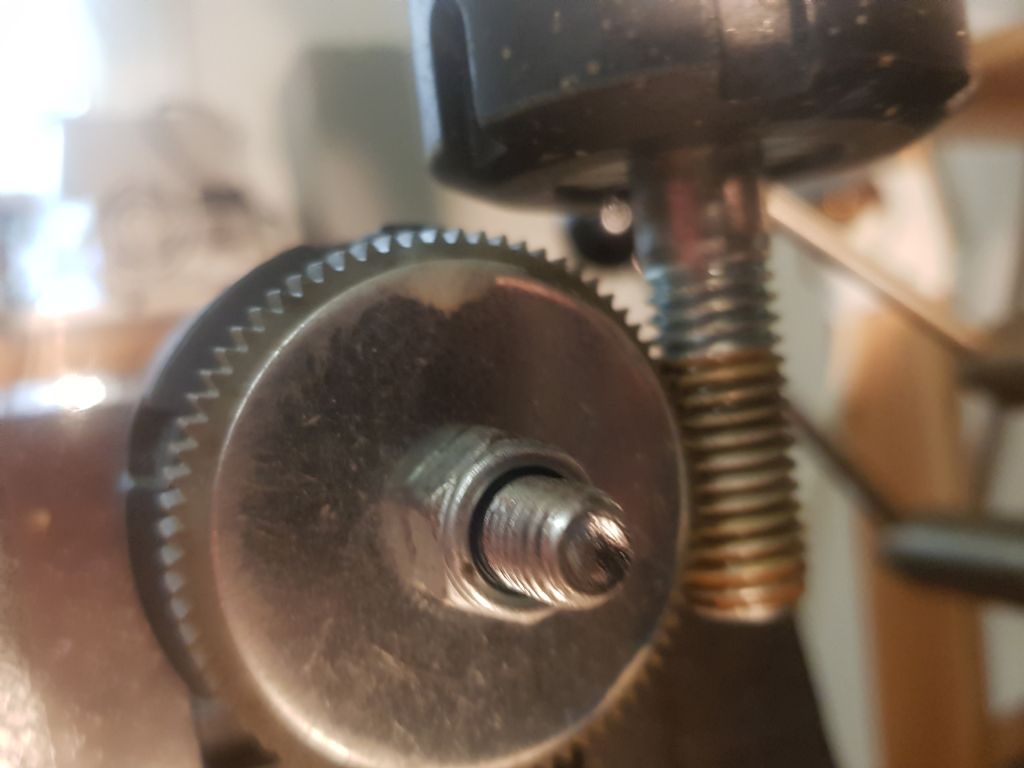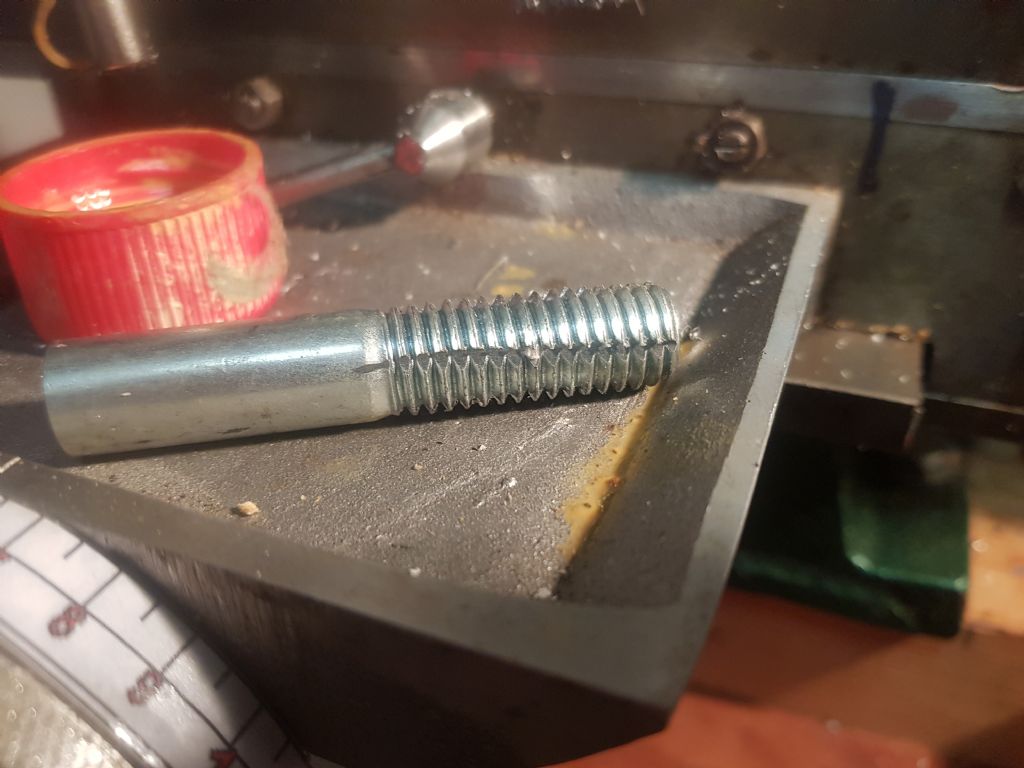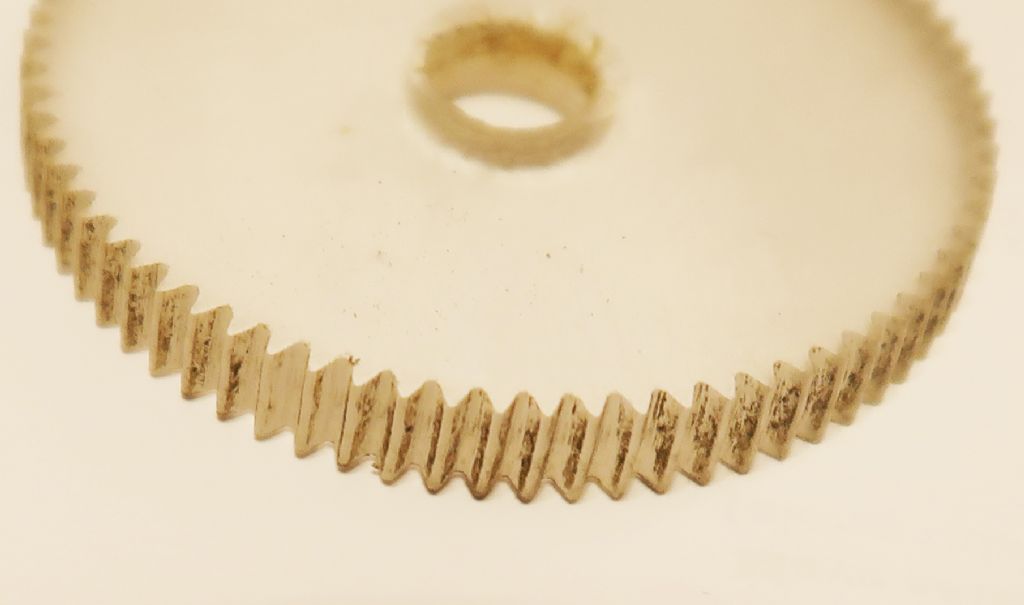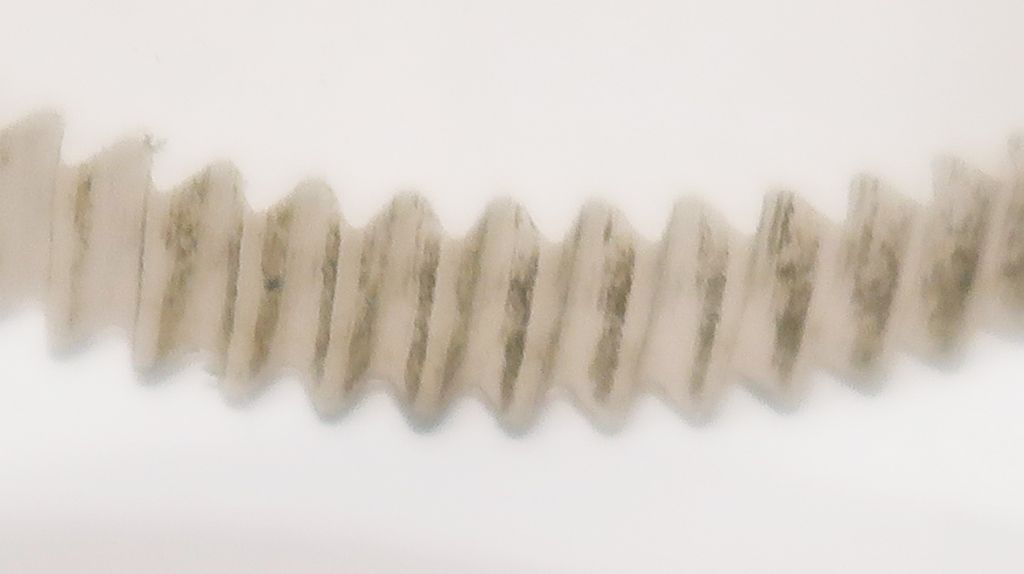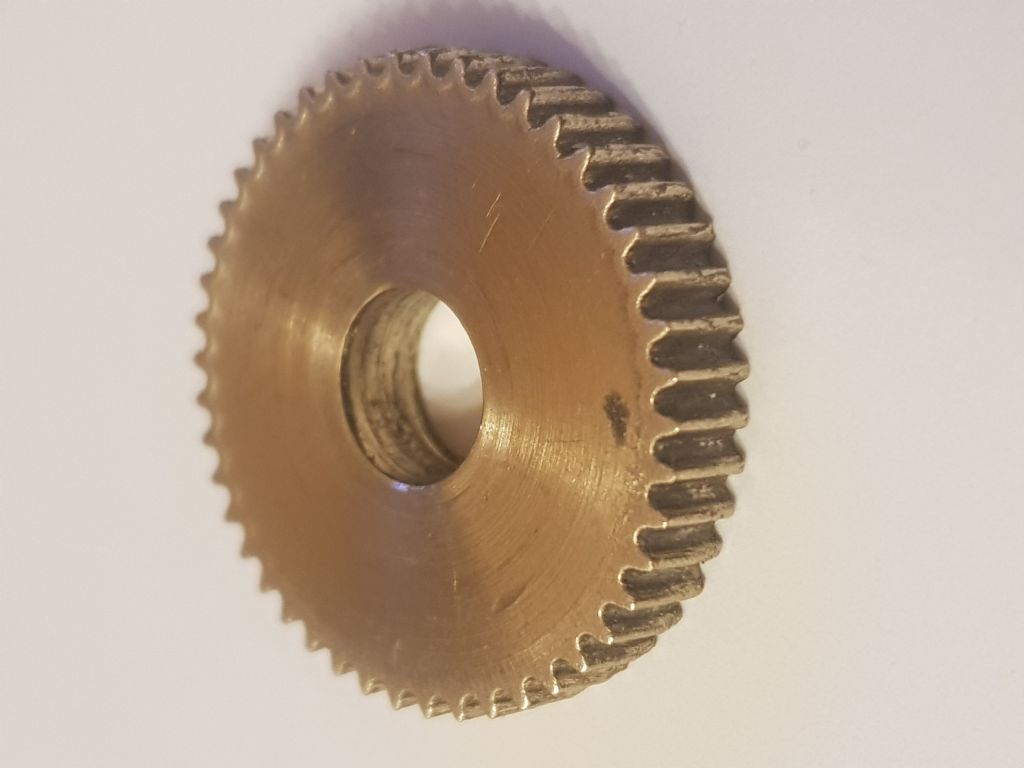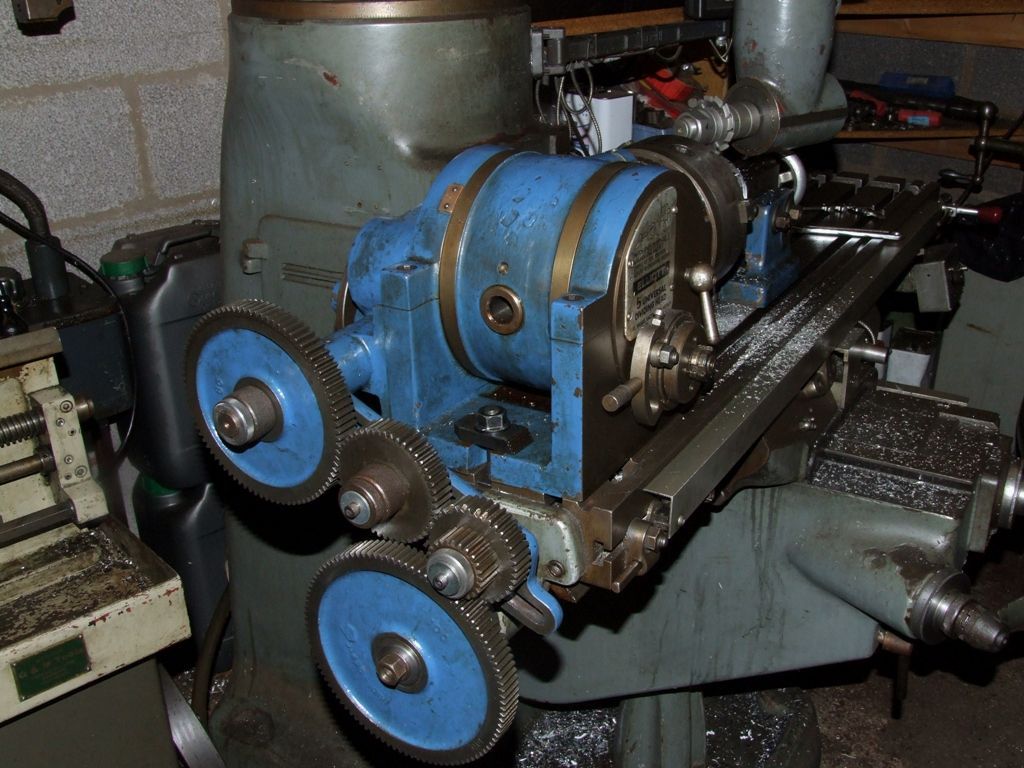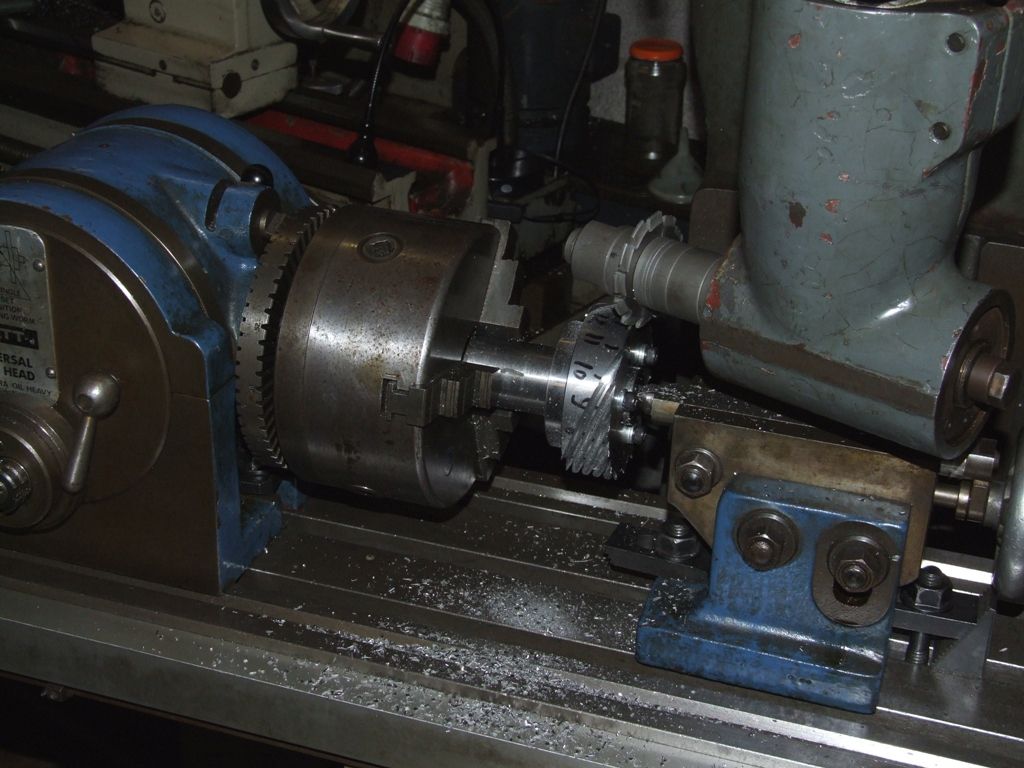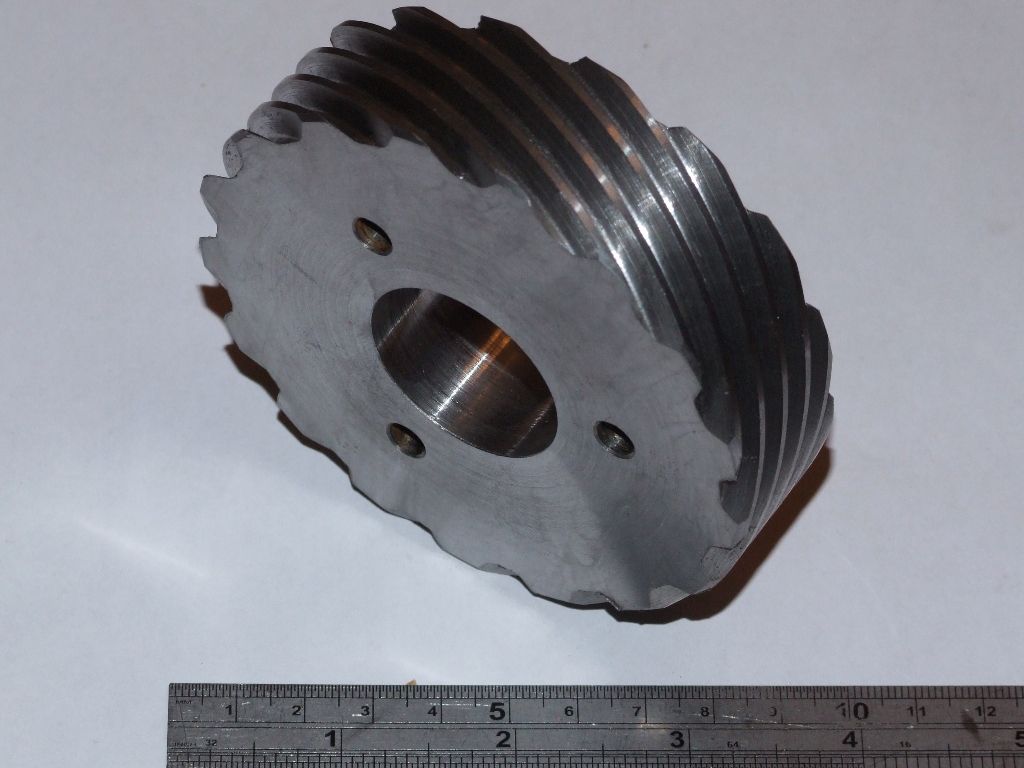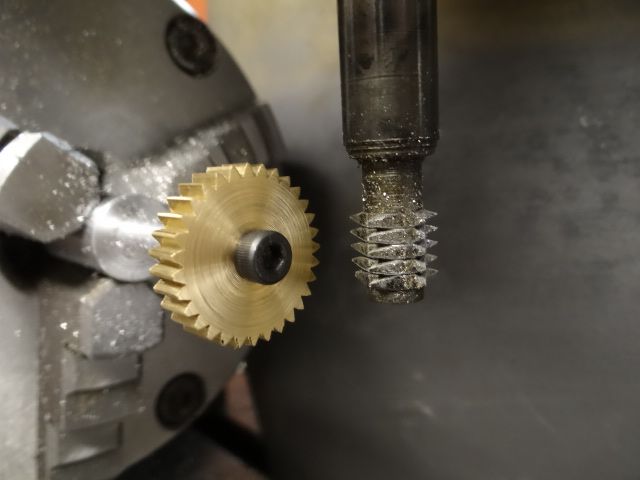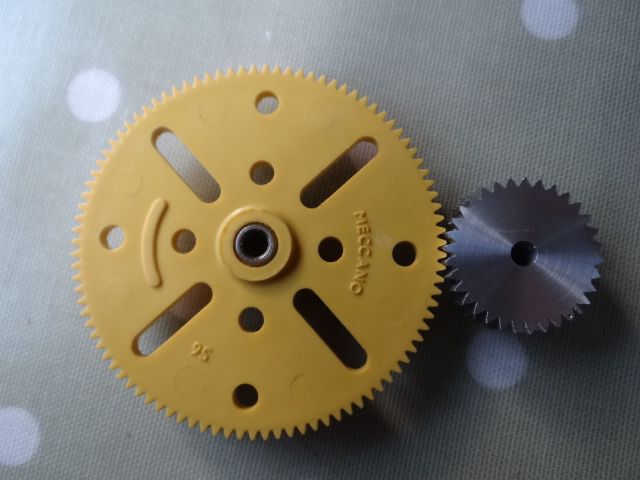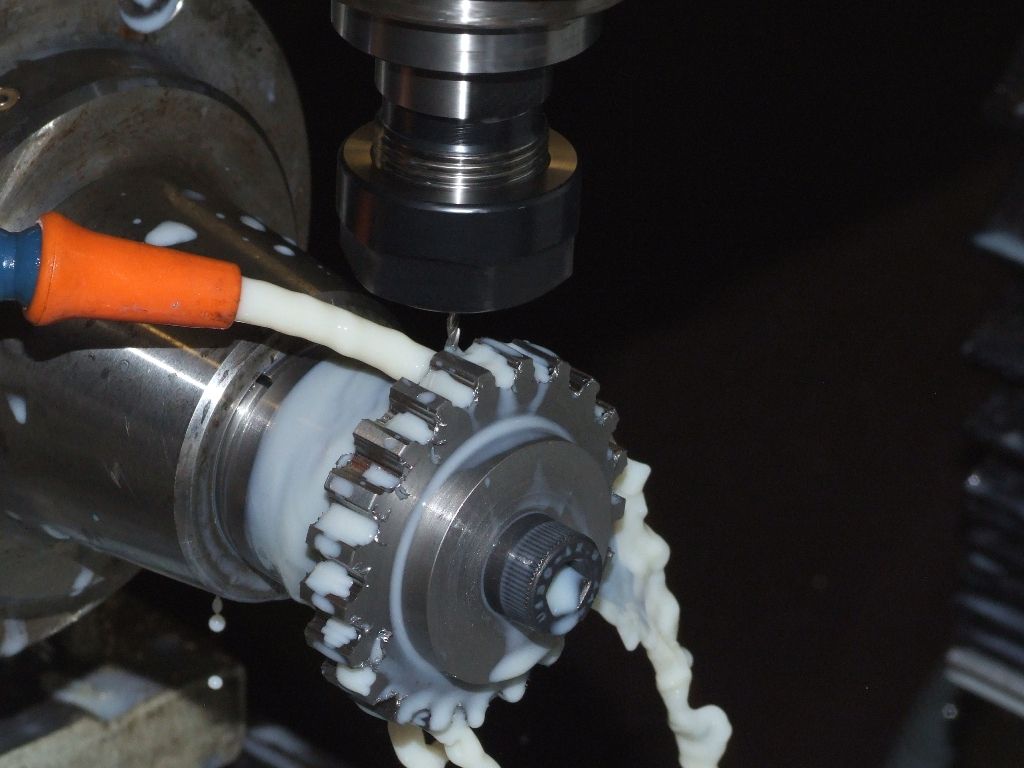Posted by brian jones 11 on 15/09/2021 22:27:24:
…
I dont know of a simple system that allows you to cut gears with ease and speed (I am discounting the modern use of stepper motors for the job for the purposes of this discussion. No electronics allowable
…Hence my pursuit of a cheap charlie way of knock up spur gears …
But Brian, you should know of a simple system! I've mentioned it at least twice in this thread, provided a picture, and linked to Neil's Orrery Thread where he used the method to make many gears.
On the 20th August, I typed:
Using a tap to cut gears isn't new. I've experimented with it, but got much better results with a Sunderland Rack cutter and Rotary Table:

Neil Wyatt made a lot of gears this way for his Jovilabe Orrery a few years ago.
Unlike a tap, Rack Cutters get the number of teeth right and, with a little care, they cut an accurate involute. Rack cutting and Hobs do take longer!
Boils down to how much the operator needs an accurate gear as opposed a quick approximation. If gashing gears with a tap is 'good enough' for the job in hand, go for it! No-one objects.
The much despised armchair is a valuable engineering tool. They're good for research and thinking.
Is Mr Sunderland's method too complicated? It requires a:
- Lathe and V cutter ground to turn the Sunderland Rack Cutter
- Mill, milling cutter and horizontal rotary table (or other indexer) to relieve the Sunderland Cutter. (Could be done with a file.)
- Mill with horizontal rotary table or other indexer, plus chuck to hold the gear blank.
The results are predictable. This home-made gear has the right number of teeth, it sits on ½" Meccano centres, and it meshes with the commercial plastic gear without shredding it:

Hobbers are preferred for mass-production because they churn out well-made standard gears quickly and efficiently. Sunderland is mostly used by industry to cut big bespoke gears, often by planing, but same principle.

Sunderland is slower, but there's no need to make a special hob, and it's possible to generate accurate involutes. The Sunderland method can be created in a small workshop without too much trouble, no pre-gashing is required, and results are reliable and predictable. I'd expect Sunderland to be faster than Brian's free method in practice because Sunderland produces fewer rejects. Sunderland wins whenever the centres, or exact number and shape of teeth matter. Sunderland versus Hob is a different debate!
Dave
Martin Kyte.


